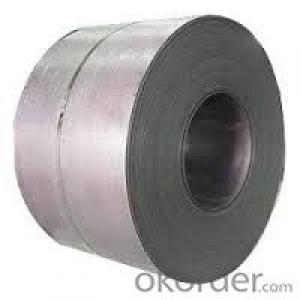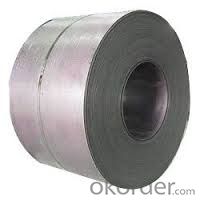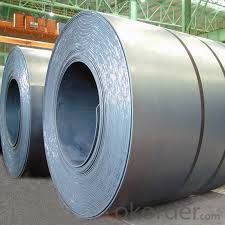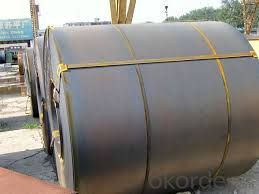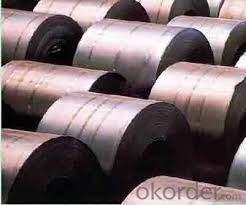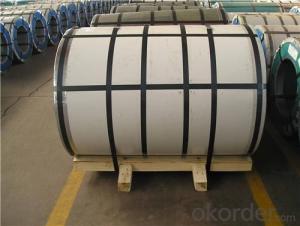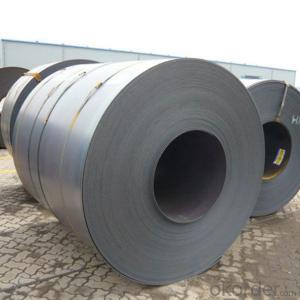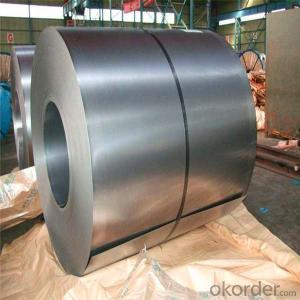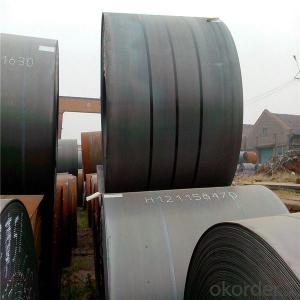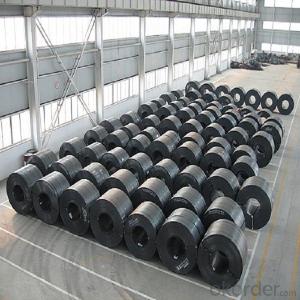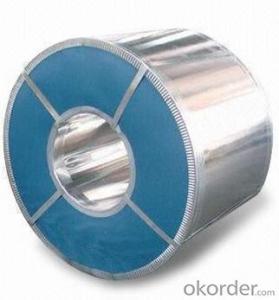hot rolled pickled and oiled steel coil in China
- Loading Port:
- China main port
- Payment Terms:
- TT OR LC
- Min Order Qty:
- 30 m.t.
- Supply Capability:
- 500000 m.t./month
OKorder Service Pledge
OKorder Financial Service
You Might Also Like
Structure of hot rolled steel:
Our products enjoy an excellent reputation and have been exported to Europe, South-America, the Middle-East, Southeast-Asia, Africa and Russia etc.. We sincerely hope to establish good and long-term business relationship with your esteemed company.
Product Description:
Product: | Hot Rolled Steel Coils/Sheets |
Material: | Q195,Q235,A36,SS400,S235JR,Q345,ST37-2, CCSB etc |
Standard : | JIS G3002 GB/T251B |
Technique: | hot rolled |
Thickness | 1.2mm to 200mm |
Tolerance of thickness: | :+/-0.03mm |
Width: | 750mm-2000mm |
Tolerance of width: | :+/-5.00mm (aiming to +/-2.00mm) |
Normal width: | 914mm, 1000mm, 1200mm, 1219mm, 1250mm,1500mm |
Length: | According to requirement |
Coil ID: | 508mm-610mm |
Coil Weight: | 10-25 Metric Tons |
Surface: | Black, Chromate, fingerprint resistant treatment, slight oiled or non-oiled, dry |
Port of Loading: | Tianjin/Shanghai port |
Packaging Details: | Standard export packing or according to the clients required |
Delivery Time | Within 30 days after received 30% deposit or workable L/C |
Payment Terms: | L/C,T/T |
We can ensure that stable quality standards are maintained, strictly meeting both market requirements and customers’ expectations. Our products enjoy an excellent reputation and have been exported to Europe, South-America, the Middle-East, Southeast-Asia, Africa and Russia etc.. We sincerely hope to establish good and long-term business relationship with your esteemed company.
- Q: How are steel coils used in the production of packaging machinery?
- Steel coils are used in the production of packaging machinery as they serve as the raw material for manufacturing various components of the machinery, such as frames, supports, and structural elements. The steel coils are processed through cutting, bending, and welding to create the necessary parts, ensuring durability and stability in the packaging machinery's construction.
- Q: How do steel coils contribute to energy efficiency in transportation?
- Steel coils contribute to energy efficiency in transportation in several ways. Firstly, steel coils are lightweight and have a high strength-to-weight ratio. This means that less steel material is required to carry the same load compared to other materials, such as wood or concrete. As a result, the overall weight of the transport vehicle is reduced, which leads to lower fuel consumption and emissions. Secondly, steel coils are highly durable and can withstand harsh conditions during transportation. They have excellent resistance to corrosion, impact, and fatigue, ensuring a longer lifespan for the transport vehicle. This durability reduces the need for frequent repairs or replacements, resulting in reduced energy consumption and material waste. Furthermore, steel coils are easy to handle and transport. They can be easily loaded and unloaded from trucks, trains, or ships due to their compact and standardized size. This efficiency in handling reduces the time and energy required for loading and unloading operations, thereby increasing overall transportation efficiency. Additionally, steel coils can be efficiently stacked and stored, maximizing the use of available space in transport vehicles. This reduces the number of trips required to transport the same amount of goods, resulting in less energy consumption and lower transportation costs. Lastly, steel is a highly recyclable material. At the end of their life cycle, steel coils can be easily recycled and used to produce new steel products. This reduces the demand for raw materials and the energy required for manufacturing new products, contributing to overall energy efficiency in transportation. In conclusion, steel coils contribute to energy efficiency in transportation through their lightweight, durable, easy-to-handle, and recyclable nature. These characteristics result in reduced fuel consumption, lower emissions, decreased maintenance needs, efficient use of space, and reduced material waste, all leading to a more sustainable and energy-efficient transportation system.
- Q: How are steel coils labeled and identified?
- To ensure accurate tracking and handling of steel coils throughout their journey, various methods are employed to label and identify them. The labeling and identification process typically consists of the following steps: 1. Initial Marking: At the outset, the manufacturer's name or logo is affixed to the steel coil, enabling easy identification of the producing company. 2. Unique Identification Number: A distinct identification number, commonly known as a coil number, is assigned to each steel coil. This number is often engraved or imprinted on the surface of the coil and serves the purpose of tracking and managing inventory. 3. Specifications of Size and Weight: Labels indicating the size and weight specifications of the steel coils are attached. This information aids in determining the coil's dimensions and weight capacity, ensuring appropriate handling and transportation arrangements. 4. Indication of Grade and Material: The labeling typically includes information about the grade and material composition of the steel coil. This essential data offers insights into the properties and quality of the steel, guaranteeing its correct utilization in manufacturing processes. 5. Heat or Lot Number: Steel coils may also bear a heat or lot number, which denotes the production batch from which the coil originated. This information contributes to traceability and quality control, simplifying identification in the event of any issues or defects. 6. Barcodes or QR Codes: Many steel coils now feature barcodes or QR codes that can be scanned using automated systems. These codes contain all pertinent information about the coil, streamlining data capture and management throughout the supply chain. Proper labeling and identification of steel coils are of utmost importance for efficient logistics management, inventory control, and quality assurance. By implementing these identification methods, manufacturers, distributors, and end-users can effortlessly track, handle, and utilize steel coils in a secure and productive manner.
- Q: What are the different coil packaging machine configurations used for steel coils?
- There are several different coil packaging machine configurations used for steel coils, including horizontal coil packaging machines, vertical coil packaging machines, and orbital coil packaging machines. Horizontal coil packaging machines are typically used for smaller steel coils and provide a horizontal wrapping process. Vertical coil packaging machines are designed for larger steel coils and perform a vertical wrapping process. Orbital coil packaging machines use a rotating ring to wrap steel coils in a circular motion, providing maximum stability and protection. Each configuration offers specific advantages and is chosen based on the size and shape of the steel coils being packaged.
- Q: Can steel coils be customized?
- Yes, steel coils can be customized to meet specific requirements such as size, shape, thickness, and surface finish. Customization can be done through processes like cutting, slitting, shaping, and coating to ensure that the steel coils are tailored to the desired specifications.
- Q: How are steel coils inspected for surface defects?
- Steel coils are inspected for surface defects using various methods such as visual inspection, magnetic particle testing, eddy current testing, and ultrasonic testing. These techniques help identify any imperfections or flaws on the surface of the steel coils, ensuring they meet quality standards before they are further processed or shipped to customers.
- Q: What is the standard thickness of steel coils?
- The standard thickness of steel coils can vary depending on the specific application and industry. However, common thickness ranges for steel coils typically fall between 0.015 inches (0.38 mm) and 0.125 inches (3.17 mm).
- Q: What are the applications of steel coils in the aerospace industry?
- Steel coils have several important applications in the aerospace industry. One of the key uses is in the manufacturing of aircraft structures. Steel coils are commonly used in the fabrication of various components such as wing spars, fuselage frames, and landing gear. The high strength and durability of steel make it an ideal material for these critical parts, as they need to withstand heavy loads and extreme conditions. Another application of steel coils in the aerospace industry is in the production of engine components. Steel coils are used to manufacture turbine blades, which are subjected to high temperatures and rotational forces. The excellent heat resistance and mechanical properties of steel make it suitable for these demanding applications, ensuring the reliability and performance of aircraft engines. Steel coils are also utilized in the production of fasteners and connectors used in the aerospace industry. Fasteners such as bolts, nuts, and rivets made from steel coils are crucial for joining different parts of an aircraft securely. These fasteners need to have high tensile strength and corrosion resistance to ensure the structural integrity and safety of the aircraft. Additionally, steel coils find application in the production of fuel tanks and hydraulic systems. The excellent weldability and formability of steel allow for the efficient fabrication of these complex structures. Steel coils can be shaped into different sizes and configurations, providing flexibility in designing fuel tanks and hydraulic components that meet specific requirements. In summary, steel coils play a vital role in the aerospace industry. Their use in aircraft structures, engine components, fasteners, and fuel tanks showcases their versatility and reliability. The exceptional strength, durability, heat resistance, and formability of steel make it a preferred material for various aerospace applications, ensuring the safety and performance of aircraft.
- Q: Is it possible that stainless steel watches get rust. Any experience? Thanks.
- Under certain conditions, even stainless steel will rust. They include: Exposure to some noble metals (copper/silver) in a corrosive atmosphere - and why stainless must be separated from silver or silver plate in a dishwasher. Stainless steel will pit if touching silver as many DW detergents are rich in chlorine. Under some conditions, and depending on your skin chemistry, if you wear a copper bracelet on the same arm as the watch, the surface of the watch will pit. If you commonly are exposed to some kinds of welding fluxes, if you are exposed to water with high salt concentration and you do not rinse off the watch after exposure, that can pit the surface. Stainless Steel is no more than corrosion-resistant, not corrosion-proof. Most of the time under most conditions, it is fine. But not all of the time under every condition. As it happens, what affects SS the most is any kind of electrolysis due to galvanic action involving halogen salts.
- Q: As we all know Shaq killed the movie Steel by suckin so bad but does anyone know what happened to the comic book version.
- Addendum to the previous answer - although he doesn't have his own comic currently, John Henry Irons still appears in comics, most recently in several issues of 52.
Send your message to us
hot rolled pickled and oiled steel coil in China
- Loading Port:
- China main port
- Payment Terms:
- TT OR LC
- Min Order Qty:
- 30 m.t.
- Supply Capability:
- 500000 m.t./month
OKorder Service Pledge
OKorder Financial Service
Similar products
Hot products
Hot Searches
Related keywords
